Filter by
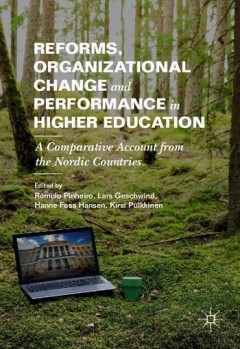
Reforms, organizational change and performance in higher education : a compar…
This open access book investigates the effects of changes in leadership and managerial structures of Nordic universities resulting from reforms in the last decade. It builds on a rich, comparative dataset across a multiplicity of system-wide (macro) and organisational (meso and micro) dimensions, namely: reform or policy initiatives; drivers, aims, instruments and actors; structural changes wit…
- Edition
- -
- ISBN/ISSN
- 9783030117382
- Collation
- xx, 326p. : ill.
- Series Title
- -
- Call Number
- 320.6 REF r
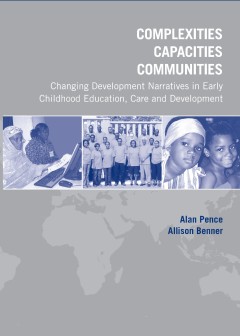
Complexities, capacities, communities: changing development narrativesin earl…
The term ‘capacity building’ has come into common usage in twenty-first century international development. While the term means different things to different people, it is often used to describe an infusion of knowledge or skills to help ‘build’ a government’s or institution’s ability to address key development challenges. However, like other well intentioned interventions from the …
- Edition
- -
- ISBN/ISSN
- 9781550585650
- Collation
- iv, 118p. : ill
- Series Title
- -
- Call Number
- 305.231 PEN c

Special education in secondary schools
This textbook provides information on the practice of teaching special education in the secondary schools. Research-based practices are explained for supporting student functioning in language arts, math, and other content areas. Specifically, the eight chapters address: (1) Introduction to secondary special education; (2) Curriculum-based measures to inform learning; (3) Strategies for working…
- Edition
- -
- ISBN/ISSN
- 9781944548087
- Collation
- 131p. : ill.
- Series Title
- -
- Call Number
- 371.9 LOS s
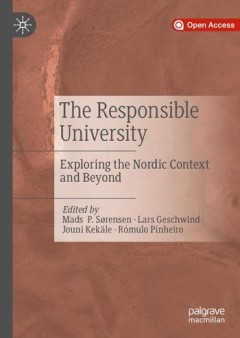
The responsible university : exploring the Nordic context and beyond
This book explores how the notion of the responsible university manifests itself at various levels within Nordic higher education. As the impetus of the knowledge society has catapulted the higher education sector to the forefront of policy agendas, universities and other types of higher education institutions face increasing scrutiny, assessment and accountability. This book examines this phen…
- Edition
- -
- ISBN/ISSN
- 9783030256463
- Collation
- xvii, 318p. : ill.
- Series Title
- -
- Call Number
- 378.00948 RES r
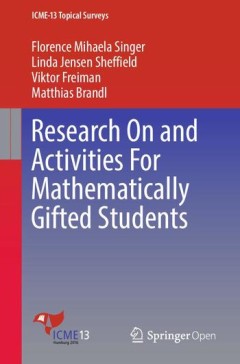
Research on and activities for mathematically gifted students
This Topical Survey offers a brief overview of the current state of research on and activities for mathematically gifted students around the world. This is of interest to a broad readership, including educational researchers, research mathematicians, mathematics teachers, teacher educators, curriculum designers, doctoral students, and other stakeholders. It first discusses research concerning t…
- Edition
- -
- ISBN/ISSN
- 9783319394503
- Collation
- -
- Series Title
- -
- Call Number
- 510.71 SIN r
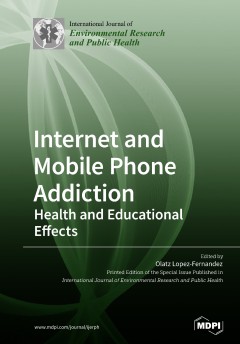
Internet and mobile phone addiction : health and educational effects
Internet use-related addiction problems (e.g., Internet addiction, problem mobile phone use, problem gaming, and social networking) have been defined according to the same core element: the addictive symptomatology presented by individuals who excessively and problematically behave using the technology. Online activity is the most important factor in their lives, causing them the loss of contro…
- Edition
- -
- ISBN/ISSN
- 9783038976042
- Collation
- xii, 311p. : ill.
- Series Title
- -
- Call Number
- 616.8584 INT i
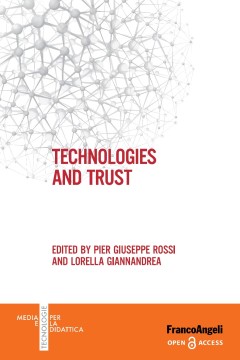
Technologies and trust
What is trust and how new technologies are changing or affecting the concept of trust? This publication offers insights from researchers working in educational technology and distance education, collected in the frame of the European FP-7 Marie-Curie People project “Stimulators and inhibitors of a culture of trust in educational interactions assisted by modern information and communication te…
- Edition
- -
- ISBN/ISSN
- 9788891754554
- Collation
- 98p. : ill.
- Series Title
- -
- Call Number
- 371.33 TEC t
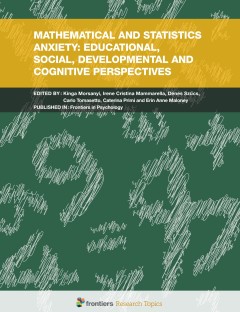
Mathematical and statistics anxiety : educational, social, developmental and …
Mathematical anxiety is a feeling of tension, apprehension or fear which arises when a person is faced with mathematical content. The negative consequences of mathematical anxiety are well-documented. Students with high levels of mathematical anxiety might underperform in important test situations, they tend to hold negative attitudes towards mathematics, and they are likely to opt out of elect…
- Edition
- -
- ISBN/ISSN
- 9782889450763
- Collation
- -
- Series Title
- -
- Call Number
- 519.5 MAT m

Educational visions : lessons from 40 years of innovation
"Educational Visions looks to future developments in educational technology by reviewing its history, covering themes such as learning analytics and design, inquiry learning, citizen science, inclusion, and learning at scale. The book shows how successful innovations can be built over time, informs readers about current practice and demonstrates how they can use this work themselves. The ch…
- Edition
- -
- ISBN/ISSN
- 9781911529811
- Collation
- xvi, 168p. : ill.
- Series Title
- -
- Call Number
- 370 EDU e
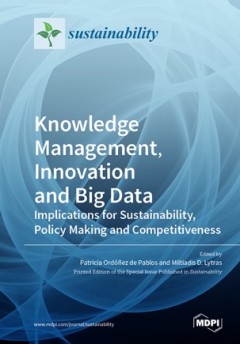
Knowledge manageation and big data : implications for sustainability, policy …
The evolution of knowledge management theory and the special emphasis on human and social capital sets new challenges for knowledge-driven and technology-enabled innovation. Emerging technologies including big data and analytics have significant implications for sustainability, policy making, and competitiveness. This edited volume promotes scientific research into the potential contributions k…
- Edition
- -
- ISBN/ISSN
- 9783039280094
- Collation
- IX< 402 p.
- Series Title
- -
- Call Number
- 300.285 LYT k
 Computer Science, Information & General Works
Computer Science, Information & General Works  Philosophy & Psychology
Philosophy & Psychology  Religion
Religion  Social Sciences
Social Sciences  Language
Language  Pure Science
Pure Science  Applied Sciences
Applied Sciences  Art & Recreation
Art & Recreation  Literature
Literature  History & Geography
History & Geography